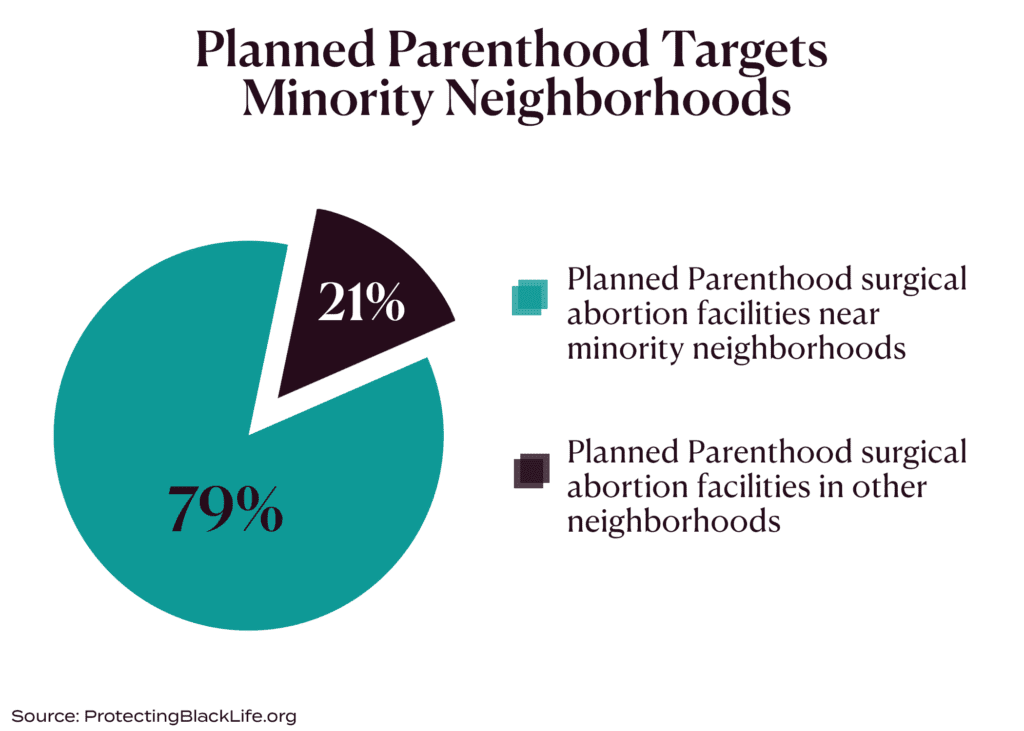Navigation
Install the app
How to install the app on iOS
Follow along with the video below to see how to install our site as a web app on your home screen.
Note: This feature may not be available in some browsers.
More options
Style variation
You are using an out of date browser. It may not display this or other websites correctly.
You should upgrade or use an alternative browser.
You should upgrade or use an alternative browser.
Nurse Charged with Abusing Black Infants in Hospital
- Thread starter MarcATL
- Start date
Blaster
Diamond Member
- Sep 9, 2022
- 26,758
- 28,719
- 2,288
Evil has always been in existence.The lineage of evil strikes again
- Jul 27, 2021
- 61,952
- 74,191
- 3,488
The lineage of evil strikes again, this time via a heinous attack against our most precious commodity, our children...
.
What is the ratio of black infants to white infants in that particular institution?
You'd be a lot more credible if you had something other than a black man's YouTube video.
.
What difference could that possibly make?.
What is the ratio of black infants to white infants in that particular institution?
.
- Jul 27, 2021
- 61,952
- 74,191
- 3,488
.What difference could that possibly make?
If all of the infants in the institution are black, even you should be able to understand the difference.
.
Votto
Diamond Member
- Oct 31, 2012
- 63,444
- 69,129
- 3,605
Here is a guy that champions of the Left that have overseen more black abortions than births in New York City.Batting clean-up for Planned Parenthood...
Does he hypocrite much I wonder?
What a bunch of genocidal moonbats
Meanwhile, he finds a sociopath no one here agrees with and attempts to turn it into "****** hates blackie cuz the US is soooo systemically racist" thread.
Last edited:
Votto
Diamond Member
- Oct 31, 2012
- 63,444
- 69,129
- 3,605
“Abortion and racism are both symptoms of a fundamental human error. The error is thinking that when someone stands in the way of our wants, we can justify getting that person out of our lives . . . We create the deceptions that the other person is less worthy, less human. We are all fully human. When we face this truth, there is no justification for treating those who look different than us as lesser beings. If we simply treat other people the way we’d like to be treated, racism, abortion and other forms of inhumanity will be things of the past.”1 Dr. Alveda King, pro-life leader and niece of Dr. Martin Luther King, Jr.
Fun fact, no one in the GOP actively endorses racism, but the entire Left actively promotes abortion.
Fun fact, no one in the GOP actively endorses racism, but the entire Left actively promotes abortion.
Votto
Diamond Member
- Oct 31, 2012
- 63,444
- 69,129
- 3,605

Archive: The Impact of Abortion on the Black Community - Black Community News
Originally published in July 2022. Introduction “Abortion and racism are both symptoms of a fundamen
 blackcommunitynews.com
blackcommunitynews.com
The Abortion Consumer
Disproportionately, the leading consumer of abortion services is the African-American female. According to the United States Census Bureau and the Centers for Disease Control and Prevention’s (CDC)6 Abortion Surveillance Report7, black women made up 15 percent of the childbearing population in 2018, yet obtained 33.6 percent of reported abortions. Black women have the highest abortion ratio in the country, with 335 abortions per 1,000 live births. Percentages at these levels illustrate that about 20 million black babies have been aborted since 1973.8
According to CDC, states that report abortion by ethnicity show black women disproportionately lead in the numbers. For example, in Mississippi, 72 percent of abortions are obtained by black women; in Washington, D.C., 55 percent; in Michigan, 50 percent; in Alabama, 62 percent. In many states, similar numbers are found, with black women often aborting at two or more times their presence in the population.9

The prevalence of abortion facilities within and near minority communities serves as a major contributor to the rate at which black women obtain abortions. Accordingly, black women are significantly more likely to have an abortion than white women.10
A 2012 study released by Protecting Black Life, an outreach of Life Issues Institute, used 2010 Census data to conclude that, “79% of Planned Parenthood’s surgical abortion facilities are strategically located within walking distance of African-American and/or Hispanic communities.”11
In 2017, Life Issues Institute analyzed Planned Parenthood’s placement of 25 new abortion mega centers and concluded that all of the facilities were within walking distance of minority neighborhoods. The Institute further stated that, “80 percent target black communities.”12
The findings of these studies arguably coincide with historical revelations that eugenicists – dating to the mid-1900s – believed that one of the most effective ways they could advance their agenda would be to concentrate population control facilities within targeted communities.13
The advocacy for continued funding of organizations like Planned Parenthood demeans and undermines the concept of natural rights and denies the right to life to the most vulnerable of all, the unborn child. Establishing abortion as such a cultural norm undermines the natural rights of the elderly and the infirm. If the powerful can determine that the unborn child does not have a natural, self-evident right to live, then it is possible that they can and will determine that certain other humans no longer possess those rights.
The Population Control Nexus
Abortion has been used as part of the population control agenda. Supreme Court Justice Ruth Bader Ginsburg reminded the nation of this in her 2009 New York Times Magazine interview when she said, “Frankly I had thought that at the time Roe was decided, there was concern about population growth and particularly growth in populations that we don’t want to have too many of,”14 and she was historically accurate. President Richard Nixon declared birth control for low-income women to be a “national goal” in 1969 before signing the first federal birth control program into law in 1970.15 Nixon also cited concerns about controlling the black population in conversations with White House staff that were recorded during his presidency. Some examples follow:
These are sentiments Nixon expressed during his presidency that may provide context about his thinking when he announced the conclusions and recommendations of the 1969 Population Control Commission, headed by John D. Rockefeller.19A majority of people in Colorado voted for abortion. I think a majority of people in Michigan are for abortion. I think in both cases, well, certainly in Michigan they will vote for it because they think that what’s going to be aborted generally are the little black bastards16. . . As I told you – we talked about it earlier – that a hell of a lot of people want to control the Negro bastards17 . . . People who don’t control their families are people in – the people that shouldn’t have kids.18
The Racist and Eugenic Roots of the Abortion Movement
It is no accident that abortion has become so deeply entrenched within the black community. Margaret Sanger, a founder of the American birth control movement and the organization that is now known as the Planned Parenthood Federation of America (PPFA), was a leading spokesperson and activist in the promotion of controlling the birth rate among blacks and others she considered undesirable.
In 1926, Sanger made a speech on birth control to a women’s auxiliary branch of the Ku Klux Klan in Silver Lake, New Jersey.20 She endorsed the 1927 Buck v. Bell Supreme Court decision, in which the Court ruled that states could forcibly sterilize people deemed “unfit” without their consent and sometimes without their knowledge.21
In 1939, Sanger co-authored a report, “Birth Control and the Negro,” which stated that “[N]egroes present the great problem of the South,” and advocated for a birth control program geared toward a population characterized as largely illiterate and that “still breed carelessly and disastrously.”22
A supporter of eugenics, Sanger became a formidable force when pushing her “Negro Project” designed to employ black leaders to promote birth control and limit the black population.
Sanger recruited black pastors to persuade minority women to use contraceptive birth control. “We do not want word to go out that we want to exterminate the Negro population and the minister is the man who can straighten out that idea if it ever occurs to any of their more rebellious members,” she said.23
She favored the Malthusian view of birth control and said it “aims to introduce into the creation of the next generation of American citizens the sound and scientific principles observed by the gardener and the agriculturists.”24 In an article entitled High Lights in the History of Birth Control, Sanger wrote:
Heavily relying on members of the black elite to help craft her message, “The Negro Project,” influenced respected black leaders, enticing them to Sanger’s cause. Although leaders such as Marcus Garvey strongly denounced birth control and abortion as detrimental to the survival of the black race, other black leaders and organizations supported Sanger. They included W.E.B. DuBois, the first black American to earn a Ph.D. from Harvard University and a founding member of the NAACP; Adam Clayton Powell Jr., pastor of the Abyssinian Baptist Church in Harlem; and Mary McLeod Bethune, founder of the National Council of Negro Women.26Birth control does not mean contraception indiscriminately practised. It means the release and cultivation of the better elements in our society, and the gradual suppression, elimination, and eventual extinction, of defective stocks – those human weeds which threaten the blooming and the finest flowers of American civilization.25
Sanger’s organization continues in this vein, persuading those whom blacks trust that Planned Parenthood is for the benefit of the black race. Today, the growing list of advocates for abortion includes Jesse Jackson,27 Al Sharpton,28 the entire Congressional Black Caucus,29 2018 Georgia gubernatorial candidate Stacey Abrams,30 former President Barack Obama31 – who vigorously resisted any regulation of the most unregulated industry in the nation – and Vice President Kamala Harris, who as a candidate for president, called for every state or local abortion limitation or regulation to be submitted to the U.S. Justice Department for review.32As a senator, Kamala Harris co-sponsored the Women’s Health Protection Act. This legislation would eliminate any basic requirement prior to the performance of an abortion, such as parental notification or a waiting period. It also would eliminate the protections for nurses and doctors who do not want to participate in abortion procedures.33
Ironically, Jesse Jackson had previously been strongly pro-life. In a 1977 essay in National Right to Life News, Jackson said:
Louisiana State Senator Katrina Jackson, an African-American Democrat and member of Louisiana’s Legislative Women’s Caucus and Legislative Black Caucus, does not conform to the profile Planned Parenthood and other abortion advocates seek to project for Black leaders. Senator Jackson aligns with liberal Democrat colleagues on many issues but has sponsored pro-life legislation because she believes abortion is “a modern-day genocide.”35Politicians argue for abortion largely because they do not want to spend the necessary money to feed, clothe and educate more people. Here arguments for inconvenience and economic savings take precedence over arguments for human value and human life… Psychiatrists, social workers and doctors often argue for abortion on the basis that the child will grow up mentally and emotionally scarred. But who of us is complete? If incompleteness were the criteri(on) for taking life, we would all be dead. If you can justify abortion on the basis of emotional incompleteness, then your logic could also lead you to killing for other forms of incompleteness — blindness, crippleness, old age.34
In their 2018 endorsement of Stacey Abrams, Planned Parenthood called her an “unwavering champion for reproductive health and rights.” Abrams responded by saying she would not “whisper” her ‘pro-choice’ position, stating instead that her support for abortion would be a “proud and central facet” of her campaign.36
Votto
Diamond Member
- Oct 31, 2012
- 63,444
- 69,129
- 3,605
Are you saying that Planned Parenthood and the DNC are evil?See? Lineage of evil.

- Jun 22, 2020
- 21,373
- 24,033
- 2,288
Lineage of evil = planned parenthood?The lineage of evil strikes again, this time via a heinous attack against our most precious commodity, our children...
- Sep 16, 2012
- 67,179
- 63,044
- 3,605
What difference could that possibly make?
Because she broke the bones of two white babies and one black.
This isn't about race.
. . . but a D for effort in the attempt to divide and conquer.
Nurse Charged With Breaking Bones Of Several Newborn Babies, Including at Least One Black Child, at a Virginia Hospital
Erin Elizabeth Ann Strotman, 26, faces charges of malicious wounding and felony child abuse.

Nurse Charged With Breaking Bones Of Several Newborn Babies, Including at Least One Black Child, at a Virginia Hospital
Erin Elizabeth Ann Strotman, 26, faces charges of malicious wounding and felony child abuse.
 www.theroot.com
www.theroot.com
In a statement, the hospital described Ms. Strotman as a former employee that received her nursing license in May 2019, and her certification remains active.
According to local news outlet, CBS 6, one of the alleged newborn victims was Black. The father of Noah Hackey, Dominique Hackey, explained that a nurse alerted him to his child’s shocking injury. . . . "
Families of babies hurt at Henrico Doctors’ Hospital NICU speak out after former nurse arrested
- Jul 1, 2024
- 11,814
- 4,596
- 188
What is the ratio of black infants to white infants in that particular institution?
You'd be a lot more credible if you had something other than a black man's YouTube video.
Is this step 1 of your apologetics?
Votto
Diamond Member
- Oct 31, 2012
- 63,444
- 69,129
- 3,605
I was not. How was I cheering their evil?You were just cheering on this evil weren't you?
I am adamantly opposed to them both.
How about you OP?
Have you sold your soul to the DNC instead of God like Catholic Joe Biden and so many others?
Missourian
Diamond Member
The lineage of evil strikes again, this time via a heinous attack against our most precious commodity, our children...
I can't even imagine. If she's convicted...put her under the jail.
I'm anti-death penalty...but shit like this makes me doubt my position.
Last edited:
Votto
Diamond Member
- Oct 31, 2012
- 63,444
- 69,129
- 3,605
It's like that lady Michelle Smith that drown her kids in a car cuz she wanted to appear more appealing to some guy who did not like children.I can't even imagine. If she's convicted...put her under the jail.
I'm anti-death penalty...buy shit like this makes me doubt my position.
No reason to keep them alive.
None.
liarintheWH
Diamond Member
- Oct 24, 2012
- 2,072
- 2,083
- 1,930
Wow.
This thread backfired quickly.
Tighten up, Marc.
This thread backfired quickly.
Tighten up, Marc.
Similar threads
- Replies
- 8
- Views
- 93
- Replies
- 13
- Views
- 437
- Replies
- 9
- Views
- 158
- Replies
- 61
- Views
- 659
New Topics
-
-
the quantum eraser: why information is fundamental to physics
- Started by scruffy
- Replies: 0
-
Without tariffs can the U.S afford to permanently help Ukraine, protect Taiwan?
- Started by shockedcanadian
- Replies: 8
-
-